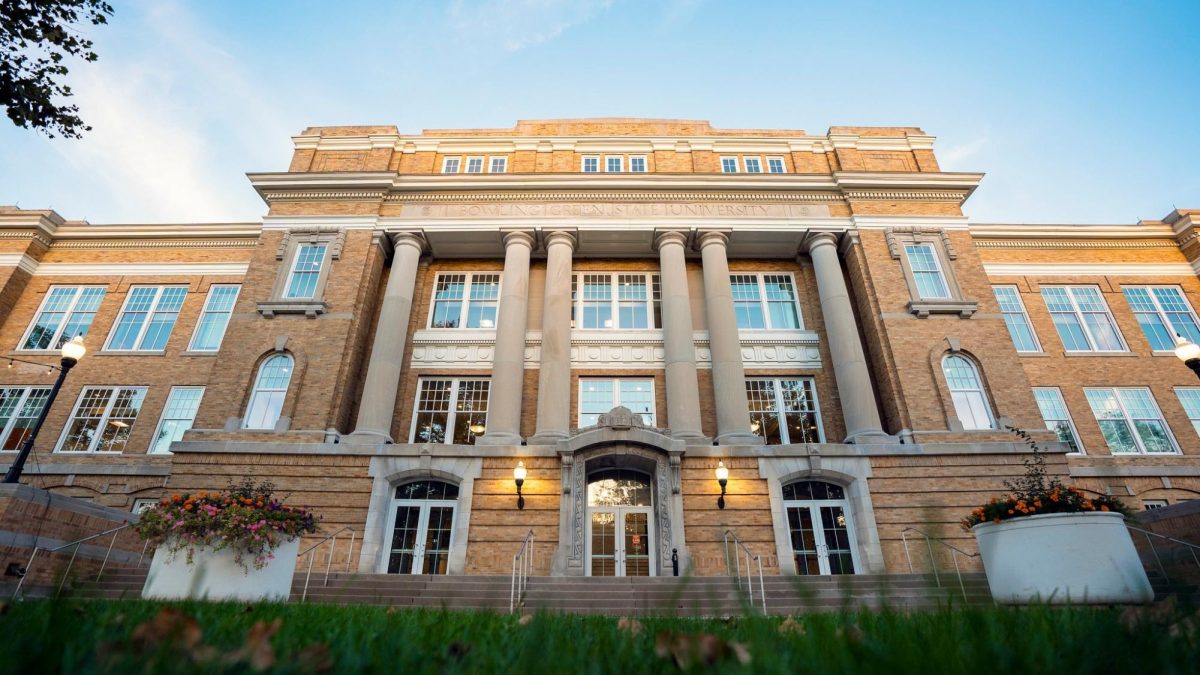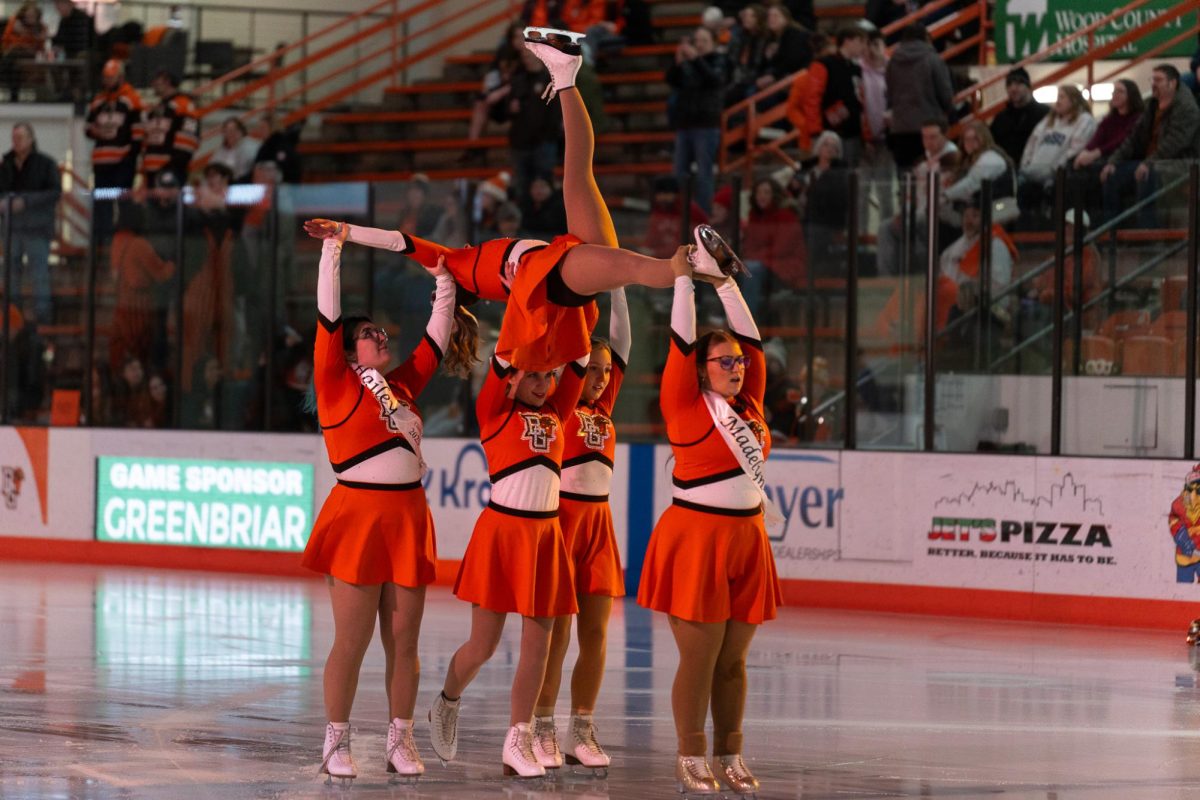Some libraries ban pieces of music; the University library invites people to perform them. Matthew Donahue, a lecturer in the Department of Popular Culture with a doctorate in American culture studies, gave a presentation and performance as part of Jerome Library’s Friends of the University Libraries — Brown Bag Lunch Series on Thursday.
His presentation, titled “Popular Music Controversies and Banned Popular Music: The Ascent from Low Culture to High Culture,” discussed controversial songs and artists from the past six decades. The goal of this presentation was to highlight banned popular music in light of the national Banned Books Week event.
Donahue defined popular culture as “anything and everything in our everyday lives.”
He used a theme to frame the history behind banned items of popular culture: for every action, there is a reaction. The actions discussed in the presentation included the growing popularity of new outlets for creativity, and the reactions were strict censorship and removal of popular songs from the airwaves.
He pointed to various responses toward specific genres that have been historically painted as volatile, such as blues, rock and roll, rap, punk and heavy metal. Some of the artists he referred to throughout his presentation were Elvis, The Beatles, Ice T, Twisted Sister, MC5, Loretta Lynn and The Sex Pistols.
As Donahue described in his presentation, everything started with Link Wray’s instrumental guitar piece “Rumble,” which was banned because the title alone was considered capable of inciting violence among young people. Donahue said this banned song was his favorite because of how it has inspired him.
“Link Wray is so influential on me as a guitar player … that tune also just kind of highlights the irony of these ban situations in rock and roll and popular music,” he said.
He spoke about this irony with regards to Jimi Hendrix’s rendition of “The Star-Spangled Banner.” Both Hendrix’s performance of the national anthem and Link Wray’s hit are examples of instrumental rock music – without lyrics – causing backlash.
Following the presentation, Donahue gave the audience a chance to hear some of the music that caused so much uproar and censorship.
With the help of two fellow alumni of the University, Craig Dickman and Tyler Burg, Donahue performed a cover of “Rumble” as well as an original tune dedicated to the Jerome Library.
The last time he did this kind of presentation, in 2013, Donahue and Dickman worked together while Burg was present in the audience as a student. It was at that presentation that Burg offered to play bass if they ever wanted to bring the presentation back to the University. Three years, and only one practice later, the trio shared the sound of original and banned music with the library.
Donahue specifically thanked the Browne Popular Culture Library and the Music Library and Sound Recordings Archives during his song dedication for all that they offered in terms of support and resources for his art, music, books and documentaries.
Donahue also gave many thanks to the library at large for inviting him to speak about banned music to supplement Banned Books Week.







